Rosacea
Rosacea is a skin condition commonly affecting middle-aged women with a lighter complexion. If you have a family history of rosacea or are of North European descent, you may be at high risk of developing this condition.
Rosacea is a skin condition commonly affecting middle-aged women with a lighter complexion. If you have a family history of rosacea or are of North European descent, you may be at high risk of developing this condition.
Rosacea is characterised by redness and visible blood vessels on the facial skin.
When a rosacea flare-up occurs, it may cause the following symptoms:
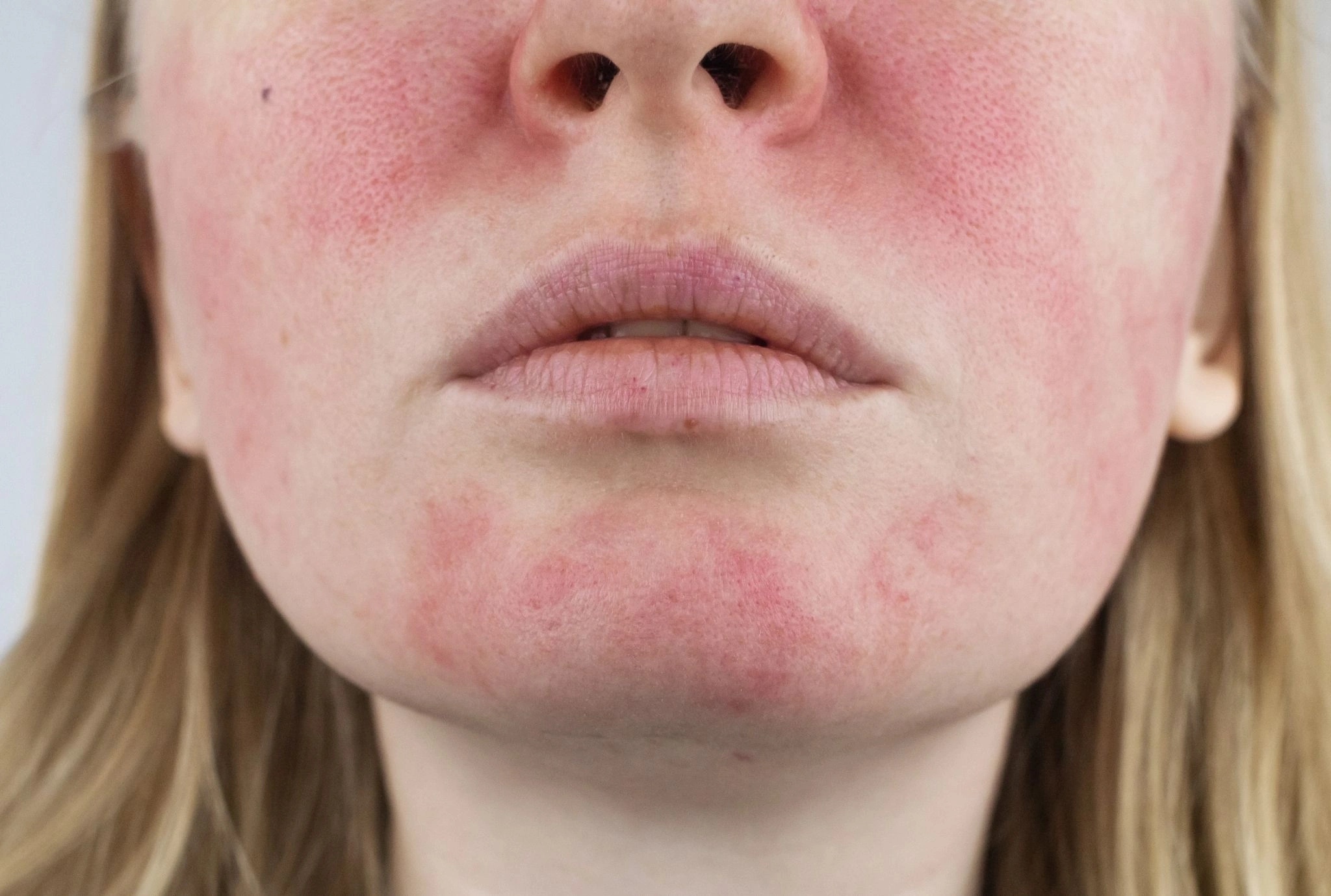
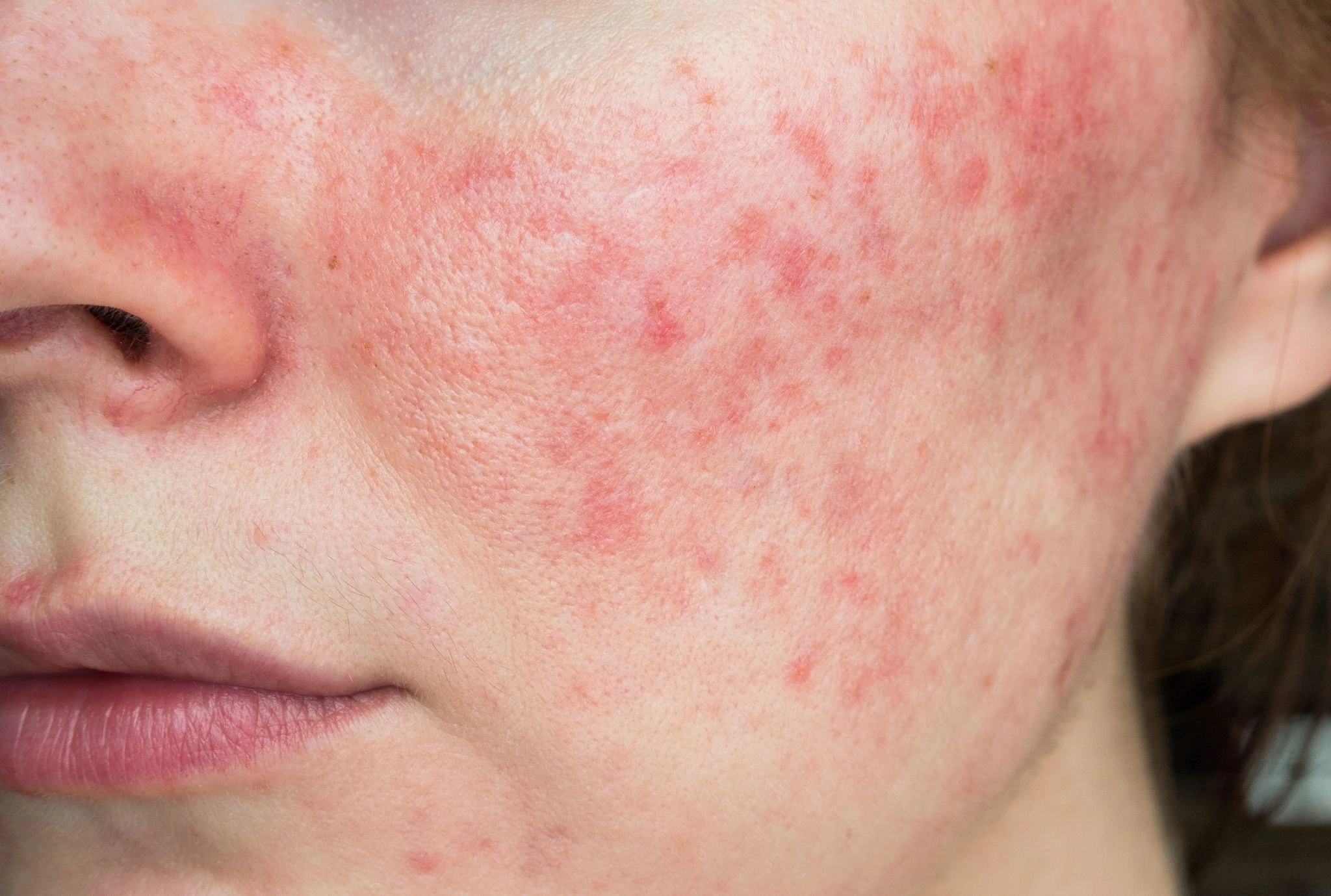
Many people mistake rosacea for acne or other inflammatory skin conditions, with symptoms lasting for weeks to months. There are many contributing factors to rosacea, such as:
Rosacea is classified into four types:
Persistent redness and dilated blood vessels, with a sensitive or burning sensation on the skin.
Characterised by small, red bumps or pustules on skin that are similar to acne.
A less common type of rosacea that is characterised by thickened skin and swollen nose.
This subtype of rosacea affects the eyes, causing redness, dryness and sensitivity to light. People may also experience frequent eye infections, blurry vision and stye.
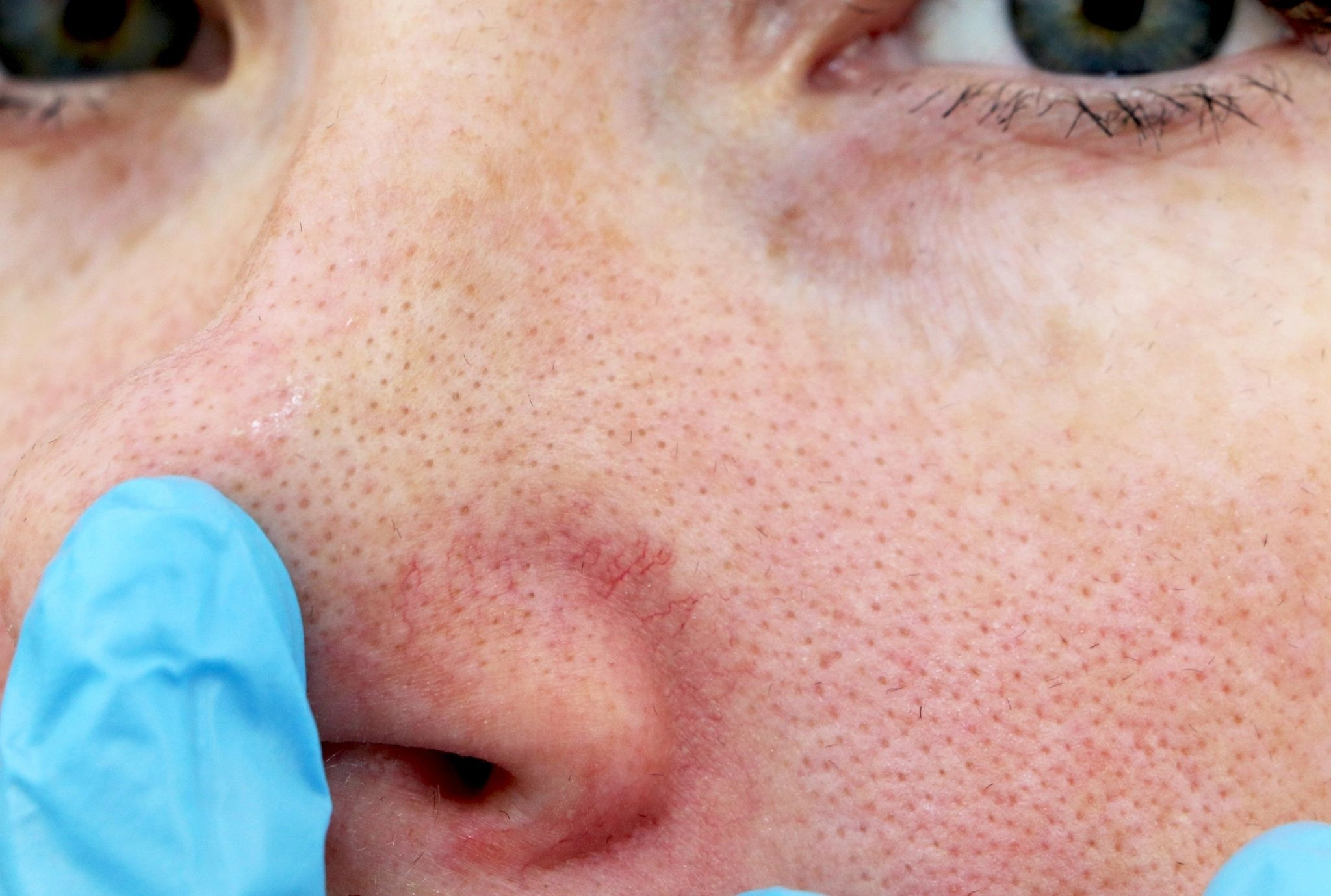
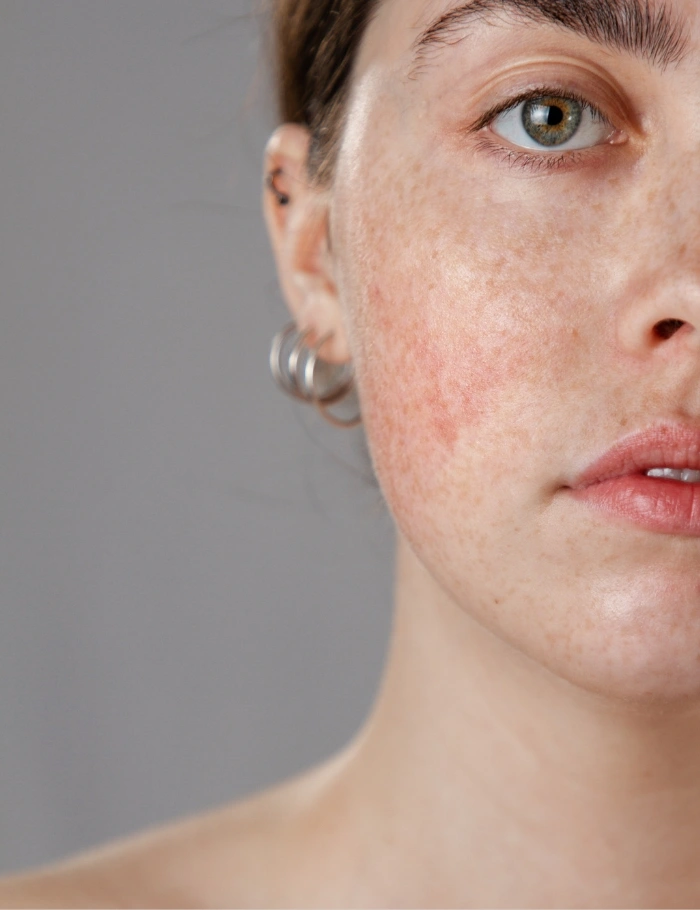
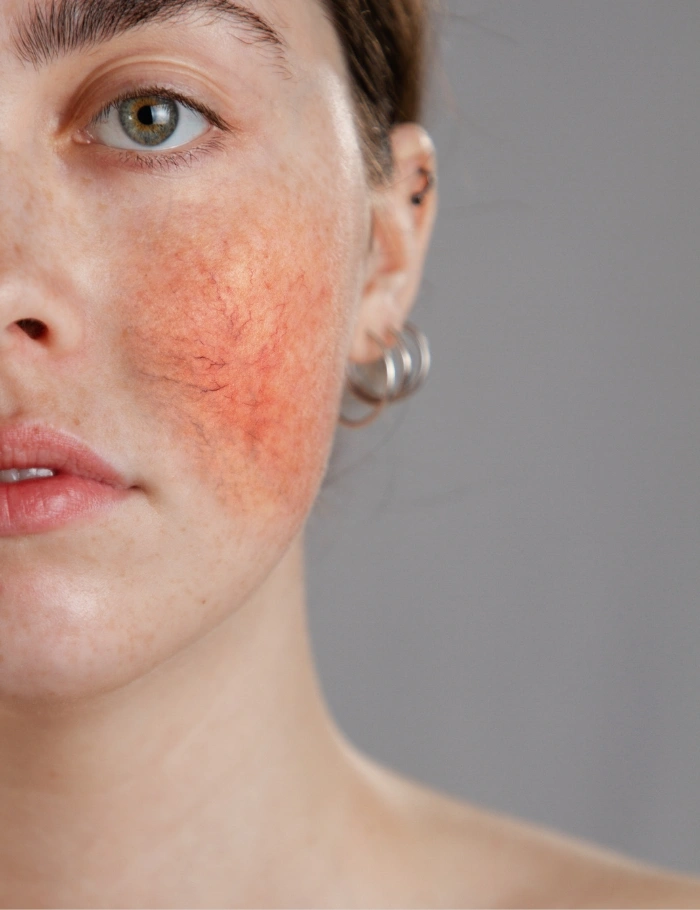
It is important to seek timely care for rosacea. Here are a few symptoms of rosacea that can help you evaluate your condition and differentiate it from acne or other similar skin conditions:
The symptoms of rosacea vary from person to person. If you think you have one or more of the symptoms mentioned above, get it evaluated by our expert dermatologist today!
While the cause of rosacea is uncertain and unknown, many factors can result in its development. Some of these include:
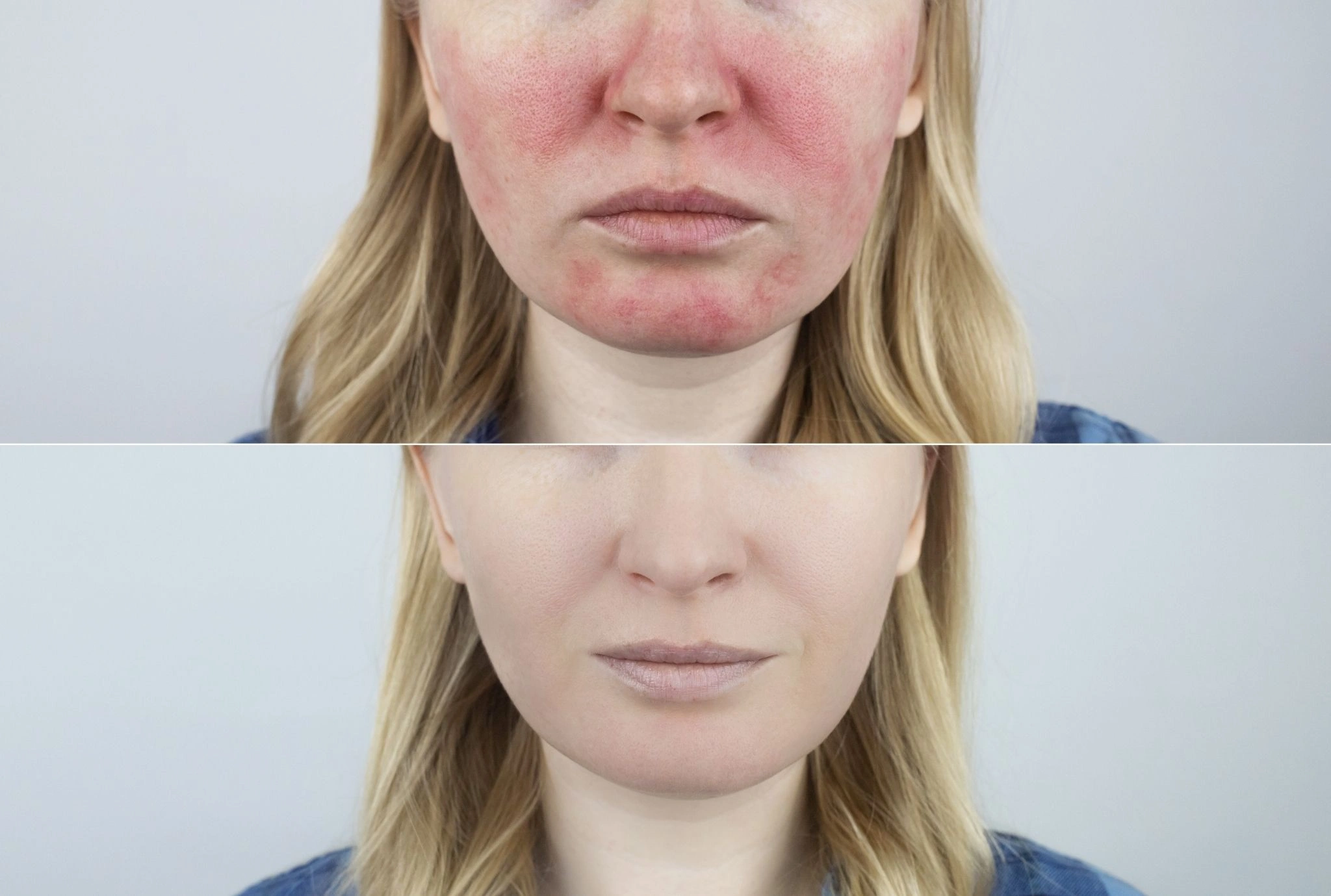
There is no cure for rosacea, but with the right medical intervention, you can keep your symptoms under control and restore your skin to its normal health. The treatment for rosacea is tailored to an individual, depending upon their condition. A personalised approach helps effectively manage symptoms, giving you healthy, well-hydrated skin that looks blush-free.
Treatment for rosacea includes one or more of the following procedures:
Facials are an effective treatment option for rosacea as they help reduce inflammation, unclog pores, and improve skin texture. We offer tailored facials customised to each individual’s needs. This is done after thoroughly evaluating your skin condition and understanding your trigger factors. Facials can be combined with other rosacea treatments to improve effectiveness.
Chemical peels are a popular treatment option for rosacea and help lower the redness and inflammation associated with the skin condition. During chemical peel treatment, a solution with alpha-hydroxy or beta-hydroxy acid is applied to the skin. When the outer layer of the skin is peeled off, it stimulates the growth of new skin cells and collagen, giving a smoother, less-irritated skin with an even skin tone.
Laser therapies are one of the most widely used treatment options for rosacea. They use high-intensity light beams that penetrate the skin and blood vessels to reduce visible symptoms. Different lasers, including the pulsed dye laser, can be used for rosacea. Treatment with lasers is safe and effective and causes minimal discomfort and downtime. However, choosing a qualified dermatologist who can tailor your treatment is essential.
This non-invasive rosacea treatment involves making small punctures in the skin with a derma roller. It helps reduce symptoms like redness and inflammation seen in rosacea. By boosting collagen and elastin production, microneedling strengthens the skin's natural barrier, reducing the chance of flare-ups.
The results of rosacea treatment depend upon the therapy chosen. Light-based therapies for rosacea show promising results and a visible reduction in redness and inflammation. You will also notice an overall improvement in the skin texture, tone and firmness. If you are concerned about any side effects of the chosen therapy, don’t hesitate to discuss it with your doctor.
Rosacea can be a frustrating skin condition. But don’t be red-faced about your skin! Consult our doctor, and let's get to the root of your rosacea! Book a consultation at Hortman Clinics today!
The results of light-based therapies for rosacea last between 6 months to a year. It also depends upon the type of laser used for the treatment. To prolong the effects of rosacea treatment, here are a few tips:
At Hortman Clinics, we recommend a rosacea facial every two to four weeks. If you have undergone laser therapy, you may need maintenance therapy 6 months to one year after the procedure or as your dermatologist recommends.
After evaluating your skin condition and rosacea symptoms, your doctor will recommend the most suitable option.
Light-based therapies like lasers are the most effective for the management of rosacea.
There is no permanent treatment for rosacea. However, several therapies can help you effectively manage your symptoms. Rosacea is a chronic or long-term skin condition; flare-ups can be prevented by avoiding trigger factors.
Everything we do is tailored to your needs, this is why we take our time to take care of you and answer all your questions.
Adding {{itemName}} to cart
Added {{itemName}} to cart